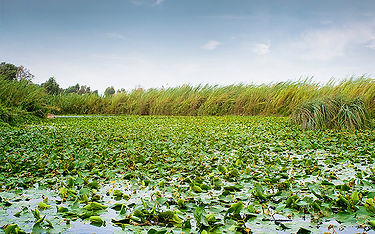ToshiAquaEcoLab
Department of Ecology and Environmental Studies
Florida Gulf Coast University
Teaching
Please find my classes!

Marine Systems (OCE1001C)
Course description: Oceanography is the science of the sea, which includes and encompasses geological, physical, chemical and biological processes. Thus the study of oceanography is truly interdisciplinary in nature. This class, Marine Systems, is an introductory course for non-science majors and will introduce you to the basic concepts of oceanography. Students will be expected to master basic oceanographic concepts and demonstrate the ability to integrate these concepts to explain simple oceanographic and related phenomena. My goal is to facilitate your understanding of marine science so that future decision-making opportunities can be based on a foundation of scientific knowledge and understanding. I also hope to encourage a better individual appreciation of the ocean, and how individuals are both affected by the ocean and, in turn, affect the ocean itself. Video assignments will comprise a significant element of the assigned course materials to help in increasing the understanding and impact of course core messages.

Oceanography (OCE3008C)
Course description: A systems approach to the study of the world’s oceans integrating elements of biology, chemistry, geology, and physics, this course focuses on the marine ecosystems of Southwest Florida to examine basic oceanographic principals and processes. A significant component of the course is field- and laboratory-based, providing hands-on experience in investigating and understanding the marine environment. This upper-division course is intended primarily for science majors and serves as the gateway course for the Marine Science program.

Microbial Ecology (EVR4024C, EVR6936)
In Fall 2011, we studied microbial communities in ponds near and in the FGCU campus. The results were presented as poster on FGCU Research Day.
In Fall 2014, we had a labortatory oriented microbial ecology class.
Prerequisites: (BSC 1010C with a minimum grade of C or (BSC 1010 with a minimum grade of C and BSC 1010L with a minimum grade of C ) ) or (CHM 1045C with a minimum grade of C or (CHM 1045 with a minimum grade of C and CHM 1045L with a minimum grade of C ) )
Course description: Microorganisms are the oldest life form and existed on Earth for billions of years before animals and plants appeared. Long evolutionary history of microorganisms created the great diversity that far exceeds that of the animals and plants. This huge diversity accounts for some of the spectacular properties of microorganisms. You will be surprised at strategies of microorganisms to adapt various environments. In this course, you will learn ecological and environmental aspects of microorganisms. It is also important to understand most microorganisms in nature are not pathogenic but beneficial. My goal is to assist you to feel microorganisms in everyday aspects of your life.

Current Topic: Aquatic Microbial Ecology (BSC4933, EVS6920)
Course description: Sometimes our Earth is called “blue planet” because the large area of Earth is covered by water bodies called oceans. Microorganisms are the oldest life form, arose from the ocean and existed on Earth for billions of years before animals and plants appeared. Long evolutionary history of microorganisms created the great diversity that far exceeds that of the animals and plants. These enormous genetic and metabolic diversities play key roles in biogeochemical cycles in aquatic environments. They are also important for biodegradation of various pollution sources. Some bacteria live as symbiotic forms in aquatic organisms and others occupy the digestive tracts and skin surface of every aquatic organism. Microorganisms are the most abundant life-forms in the oceans and their vast metabolic activity is tightly linked to the Global climate change. In this course, you will learn diversity and ecological roles of aquatic microorganisms. The goals of this class are to assist you develop abilities to read scientific literature and learn current topics of aquatic microbial ecology.

Marine Ecosystem Monitoring and Research Methods (PCB3463C)
Course description: During the course of the semester, we will learn basic methods of inventorying, monitoring, and conducting research on marine ecosystems. Emphasis is on hands-on experiences. Methods will include those used in describing climatic, chemical and physical features as well as biotic features. The field emphasis will be on Southwest Florida marine ecosystems. This course will provide a broad overview of different field and laboratory methods used in Marine Science research.